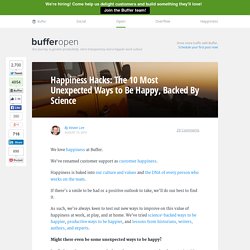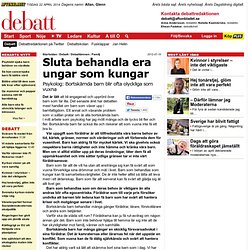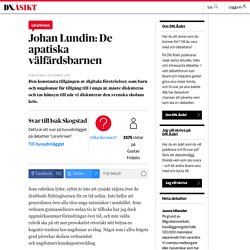

Cosy, Warm & Spacious Apartment in Amsterdam. The Space This 60m2 appartment is very comfy!

It has a nice living room with a comfy couch and a great tv and sound system with Netflix at your service. It's a great place to hang out after a long day walking in the city. The Lonely Planet of Amsterdam is awaiting you ;) Interaction with Guests Me or my brother will be there to let you in and show you around. The Neighbourhood The apartment is situated in the eastern central part of Amsterdam, which is a really nice and cosy area. Getting around It's a 5min walk to Amsterdam Muiderpoort station, which will bring you you to Central station in another 5 minutes. Other Things to Note A warm welcome to my Home! The apartment is just a 5 min walk from train station 'Amsterdam Muiderpoort' which brings you to Central Station in just 5 minutes. Tram's leave around the corner as well, and bring you to Rembrandt- or Leidse Square in just 10 Minutes.
My spacious and light apartment is fully equipped and everything is at hand. Happiness Hacks: The 10 Most Unexpected Ways to Be Happy. We love happiness at Buffer.

We’ve renamed customer support as customer happiness. Happiness is baked into our culture and values and the DNA of every person who works on the team. If there’s a smile to be had or a positive outlook to take, we’ll do our best to find it. As such, we’re always keen to test out new ways to improve on this value of happiness at work, at play, and at home. We’ve tried science-backed ways to be happier, productive ways to be happier, and lessons from historians, writers, authors, and experts. Might there even be some unexpected ways to be happy? I pulled together some research about the many unexpected and counterintuitive ways to find happiness, and I’m happy to share with you what I found. 1. Cheerful + Downcast = Happy Acknowledging the complexity of life may be an especially fruitful path to psychological well-being The above quote from psychologist Jonathan Adler of the Franklin W.
We’ve enjoyed sharing among our team about mindful meditation and reflection. How language can affect the way we think. Keith Chen (TED Talk: Could your language affect your ability to save money?)

Might be an economist, but he wants to talk about language. For instance, he points out, in Chinese, saying “this is my uncle” is not as straightforward as you might think. In Chinese, you have no choice but to encode more information about said uncle. The language requires that you denote the side the uncle is on, whether he’s related by marriage or birth and, if it’s your father’s brother, whether he’s older or younger. “All of this information is obligatory. This got Chen wondering: Is there a connection between language and how we think and behave? While “futured languages,” like English, distinguish between the past, present and future, “futureless languages” like Chinese use the same phrasing to describe the events of yesterday, today and tomorrow. But that’s only the beginning. Featured illustration via iStock. Internet erfahren. Alf B Svensson, psykolog: Sluta behandla era ungar som kungar. Det är lätt att bli engagerad och upprörd över barn som far illa.

Det senaste året har debatten mest handlat om barn som växer upp i barnfattigdom. Ett annat och växande problem som vi sällan pratar om är alla bortskämda barn. I mitt arbete som psykolog har jag mött många och de tycks bli fler och fler. Bortskämda barn far också illa och riskerar att som vuxna inte få ett bra liv. Vår uppgift som föräldrar är att tillfredsställa våra barns behov av tid, kärlek, gränser, normer och värderingar och att förbereda dem för vuxenlivet. Barn som får allt de vill ha utan att anstränga sig kan få svårt att som vuxna förverkliga sina drömmar och mål i livet.
Barn som behandlas som om deras behov är viktigare än alla andras blir ofta egocentriska. Bortskämda barn behandlar många gånger föräldrar, lärare, förskollärare och andra som betjänter. Varför ska de städa sitt rum?
Lärarstudent: "Elevdatorer stör undervisningen" De apatiska välfärdsbarnen - DN.Åsikt. Publicerad: 1 december, 2015 Den konstanta tillgången av digitala förströelser, som barn och ungdomar får tillgång till i unga år, måste diskuteras och tas hänsyn till när vi diskuterar den svenska skolans kris.

Som rubriken lyder, syftet är inte att cyniskt raljera över de drabbade flyktingbarnen för en tid sedan. Inte heller att generalisera över alla våra unga människor i samhället. Som verksam gymnasielärare sedan tio år tillbaka har jag dock uppmärksammat förändringar över tid, och min valda rubrik ska på ett mer provokativt retoriskt sätt belysa en kognitiv tendens hos ungdomar av idag. Något som i allra högsta grad påverkar skolans verksamhet och ungdomars kunskapsutveckling.
Teaching Kids NewsTeaching Kids News - Readable, teachable news. Business. Learning English - General & Business English. BBC Learning English - Course: intermediate / Unit 1. Learning English - Grammar, Vocabulary & Pronunciation. BBC Learning English - Learning English.